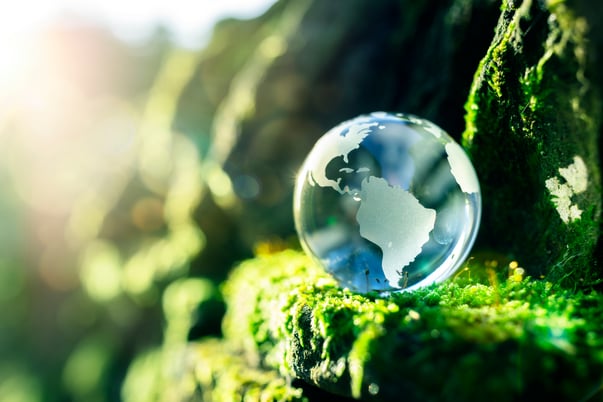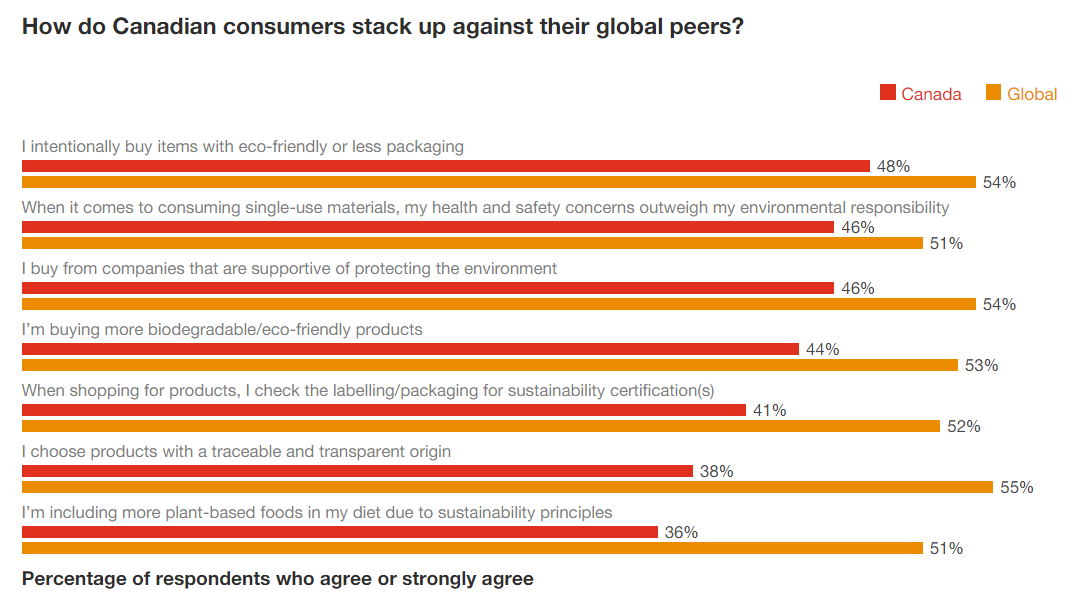
As organizations consider the implications of transitioning back to the office, it’s also worth thinking about what this and the return to other activities that have been inaccessible for the past eighteen months means for sustainability.
In this blog, we reflect on sustainability perspectives from a few sources – a report put together by McKinsey Sustainability, CB Bhattacharya, H.J. Zoffer chair of sustainability and ethics at the University of Pittsburgh’s Katz Graduate School of Business and contributor on Financier Worldwide, and Francois Faelli, global leader of Bain & Company’s consumer products practice and Solitaire Townsend, co-founder of Futerra, a consultancy focused on sustainability, both contributors on Food Business News – to understand various elements of sustainability that will be top of mind as organizations and individuals shift to a post-pandemic world.
“In terms of embedding sustainability into long-term plans, this is best done, at least initially, by putting sustainability on every meeting agenda,” continues Ben Stansfield, a partner at Gowling WLG. “If business leaders continually ask, ‘What is the environmental effect of this and is there a better option?’, then sustainability becomes institutionally embedded very quickly.” – Reshaping the future: post-pandemic sustainability
Helping people is at the core of the insurance industry. Therefore, caring about people naturally extends to being passionate about the environment. APEXA is dedicated to supporting its clients, and sustainability is something we have naturally infused into our strategies. Since 2017, 47,589 signed contracts and 286,615 documents have been agreed and validated on APEXA, which translates to much less paper use in the life insurance industry, thus saving more than a few trees.
Businesses coming to terms with fully digitizing their processes is a step in the right direction. Since some organizations have granted staff access to flexible work situations, for a few employees, work has become fully remote. Although remote work might be an integral part of some companies’ drive toward a more sustainable future, for many, an opportunity still exists to map out long-term strategies to that end:
“Companies have fresh opportunities to make their operations more resilient and more sustainable as they experiment out of necessity—for example, with shorter supply chains, higher-energy-efficiency manufacturing and processing, videoconferencing instead of business travel, and increased digitization of sales and marketing. Some of these practices could be expedient and economical to continue, and might become important components of a company-level sustainability transformation—one that accompanies the cost-efficiency and digital-transformation efforts that are likely to be undertaken across various industries in the wake of the pandemic.” – Addressing climate change in a post-pandemic world
Organizations will need to take on redefining a new environment. Their leading this initiative will encourage individuals (employees) to incorporate sustainability elements into their daily lives by making sustainability their responsibility.
“In the view of Mr. Bhattacharya, there are three steps business leaders can take to help the transition to a post-pandemic world: (i) define corporate purpose; (ii) empower stakeholders; and (iii) collaborate and partner. ‘A business exists to serve the interests of multiple stakeholders, and only by doing that well can it make money for shareholders,’ he says. ‘In other words, profits are a consequence of value creation. And once this philosophy is internalized and articulated by leadership, businesses can take ‘ownership’ of sustainability for the wellbeing of the planet and its people.” – Reshaping the future: post-pandemic sustainability
Canadian Consumers’ and Sustainability in Daily Living
While businesses and the government take the lead on sustainability, individuals also need to review and elevate their current habits:
“(During the pandemic) consumers were confronted with their waste for the first time—100% of their waste,” said Francois Faelli, global leader of Bain & Company’s consumer products practice. “And now consumers are buying sustainable products like never before, but there is still a gap. When you ask (consumers) what they buy against, they say it’s price, quality, and convenience. They don't say sustainability. That gap may be closing, said Solitaire Townsend, co-founder of Futerra, a consultancy focused on sustainability. “Searches for how to live a sustainable life increased 4,550% (on Google) during the pandemic,” she said.” – Sustainability stands out as a post-pandemic trend
The chart below shows how Canadians surveyed in comparison with the global audience, in their day-to-day, whenever faced with a decision that could have an impact on their sustainability practices.

Source - Understanding the Canadian consumer of the moment. Canadian Consumer Insights 2021, Pulse 2
Individuals, the government, and organizations each have a role to play in maintaining the momentum of building a sustainable global environment.
“The post-COVID-19 world will no doubt look different in many ways—more remote work, less flying, and the namaste possibly replacing the handshake forever,” suggested Mr. Bhattacharya. “Sustainability will undoubtedly be more front and centre as the recovery continues, and it can be a great positioning and communication strategy for companies, and thus be a powerful lever for those who are strategic.” – Reshaping the future: post-pandemic sustainability
The steps we take now will impact our environment. To digitize your processes and simplify Advisor compliance check and contracting through APEXA, please contact us now.





